As an undergraduate at Tel Aviv University in computer science and math, Prof. Amnon Shashua first cultivated his skills in the discipline of scientific thinking.
This approach to problem-solving was foundational to his subsequent academic career and meteoric rise as the CEO and founder of Mobileye. The driver-assist and autonomous-driving technology company is recognized as one of Israel’s biggest high-tech success stories. Its $15.3 billion acquisition by Intel in 2017 remains the largest ever for an Israeli tech company.
Alongside Mobileye, Shashua helms several other businesses based on artificial intelligence (AI) technology, including OrCam, which develops ‘smart’ assistive devices for the visually impaired; Israel’s first digital bank, One Zero; and AI21 Labs, which raised $64 million in 2022 to augment human writing with its AI systems for computer-generated text.
“Scholarships at TAU are part of promoting the economic success of Israel—academia plays a very strong role in this success.” – Prof. Amnon Shashua
TAU Alumnus to Benefactor
Parallel to his zeal for advancing technology, Shashua is passionate about advancing society. To date, he and his family have donated about $60 million to philanthropic causes, including scholarships at TAU.
Together with his wife, Anat, and three grown children, Shashua seeks to promote economic opportunity and movement toward high-tech among Israel’s underrepresented populations. These include the country’s ultra-Orthodox, Israeli-Arabs, women in STEM, and periphery communities.
“The biggest challenge we have worldwide, not just in Israel, is the widening wealth gap which threatens to cause social unrest and disorder,” he says of the impetus behind his giving. “Scholarships at TAU are part of promoting the economic success of Israel—academia plays a very strong role in this success,” he adds.
In another example of their philanthropic contributions, the Shashua family established a $35 million fund to aid some 2,000 new small businesses that suffered from the COVID-19 pandemic. Shashua hopes the so-called WE-19 program will further help even the playing field for new generations of entrepreneurs and innovators.
“AI’s ability to sense the world will change everything we know about mobility” – Prof. Amnon Shashua
AI: Full Throttle Ahead
Sitting at the intersection of academia and the business world, Shashua has a prime vantage point when it comes to the future of AI.
“It’s easy for a human to have common sense, but hard to program it into a machine,” he explains. “Now it’s starting to happen.”
He sees three primary areas where AI is expected to make leaps and bounds in the next five years: pattern recognition and sensing, or understanding the world through sensors; decision-making that affects the actions of others; and natural-language understanding which uses advanced software to enable computers to comprehend and respond to human text or speech.
When it comes to sensing and decision-making, autonomous driving is one example of AI’s progress.
“AI’s ability to sense the world will change everything we know about mobility,” Shashua says. “With autonomous vehicles, cars will become safer, there will be fewer cars on the roads, and lower costs in transporting people.”
“Even though I’m responsible for some 4,000 employees among all my businesses, I’m a scientist at my core,” – Prof. Amnon Shashua
Scientist at the Core
Shashua explains that his businesses are an expansion of his work as a professor of computer science at Hebrew University.
“I thought it would be nice to build startups because then you can solve bigger problems at a larger scale than in academia,” he says. “I never imagined it’d grow into something as big as it did.”
While he wears many professional hats, Shashua maintains an underlying passion for research.
“Even though I’m responsible for some 4,000 employees among all my businesses, I’m a scientist at my core,” he says.
Shashua continues to teach, too. Once a week, he hosts his advanced degree students for sandwiches and research sessions at his Mobileye offices in Jerusalem.
“Staying in academia keeps me sharp,” he adds, smiling.
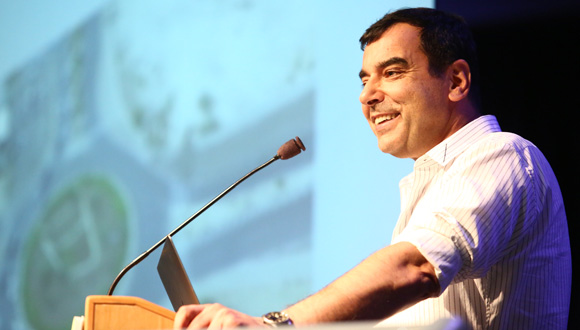
Prof. Shashua addresses a 2018 ‘Meetings with Inspiring Alumni’ event hosted by the Tel Aviv University Alumni Organization
“Take the tough courses, take the long road, and enjoy the journey not just the destination.” – Prof. Amnon Shashua
Scholarly Foundations
From an early age, Shashua planned to pursue a scientific trajectory. “Becoming an entrepreneur surprised me,” he explains.
Shashua grew up in the Tel Aviv area. In high school, he studied in a program for gifted students in computer science. His academic journey began at Tel Aviv University in 1982, a week after his discharge from the IDF’s Armored Corp, where he’d recently served in the First Lebanon War.
“The tools I acquired through my math studies at the University really captivated me,” says Shashua of his time at TAU.
He then earned a master’s degree in computer science from the Weizmann Institute of Science and completed his PhD and postdoctoral training in fields related to brain and computational sciences at MIT.
For his pioneering contributions to the field of AI, Shashua has earned numerous accolades, most recently the 2020 Dan David Prize, headquartered at TAU, and his 2022 induction to the Automotive Hall of Fame in Michigan, US.
For students aspiring to become innovators and entrepreneurs, he encourages them to “take the tough courses, take the long road, and enjoy the journey not just the destination.”
By Julie Steigerwald-Levi

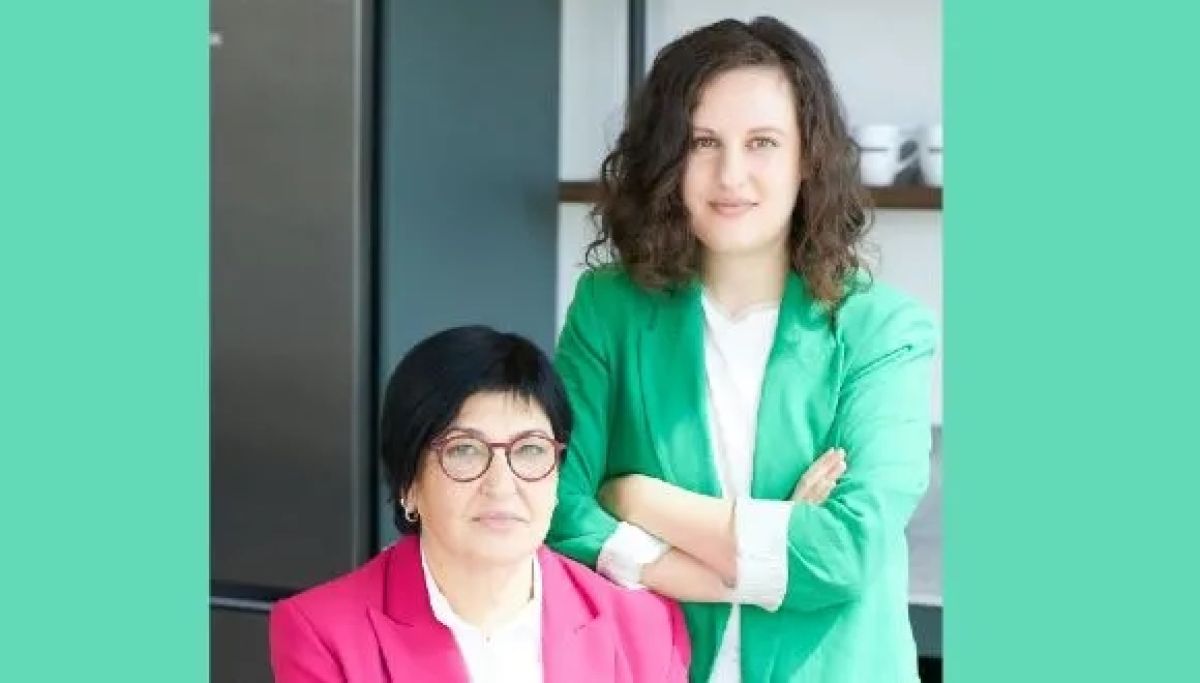


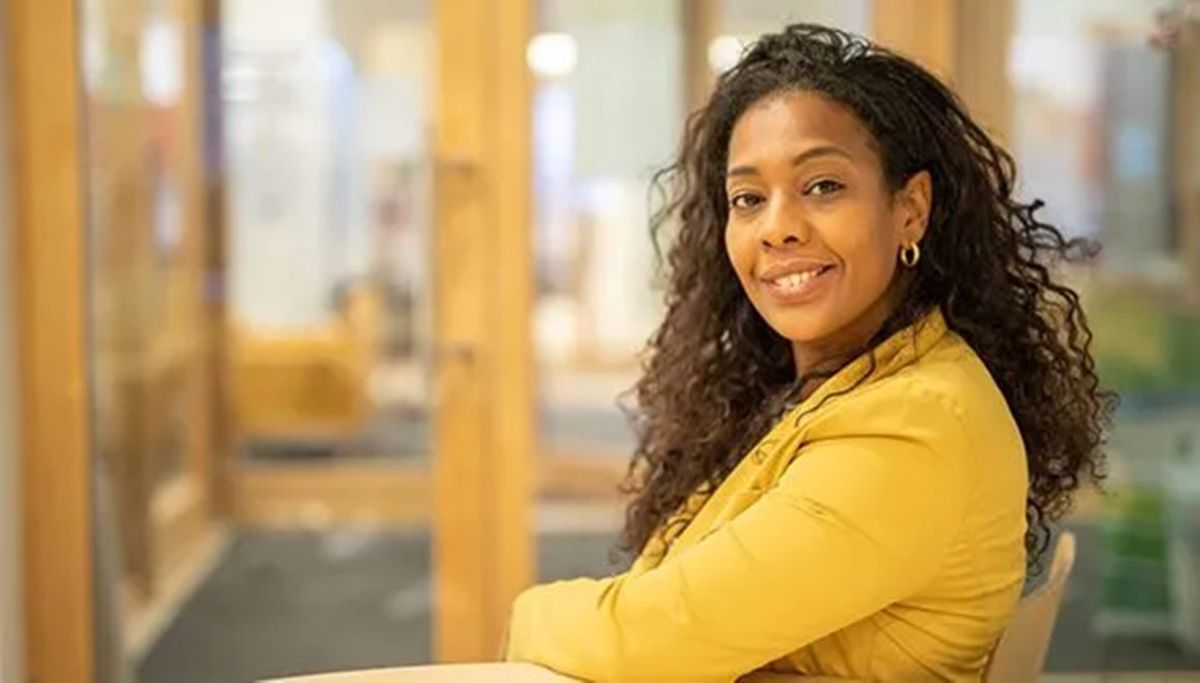
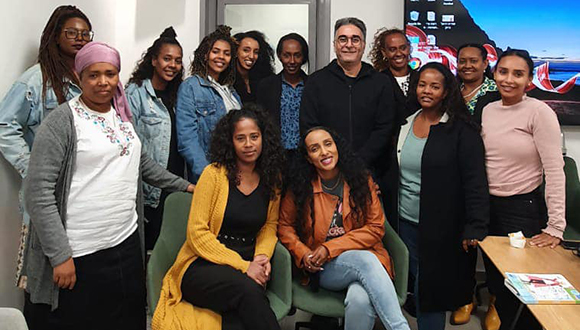
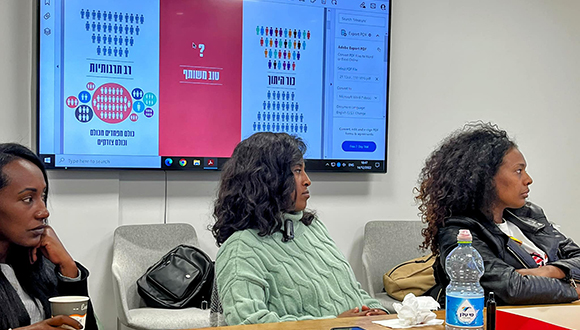
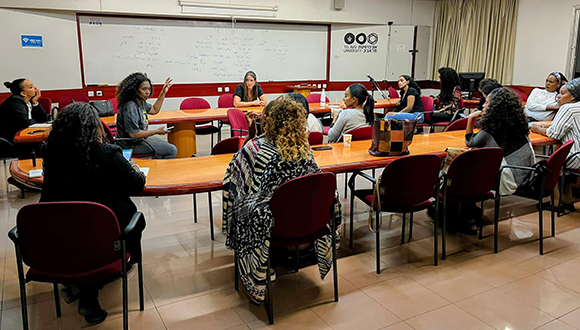
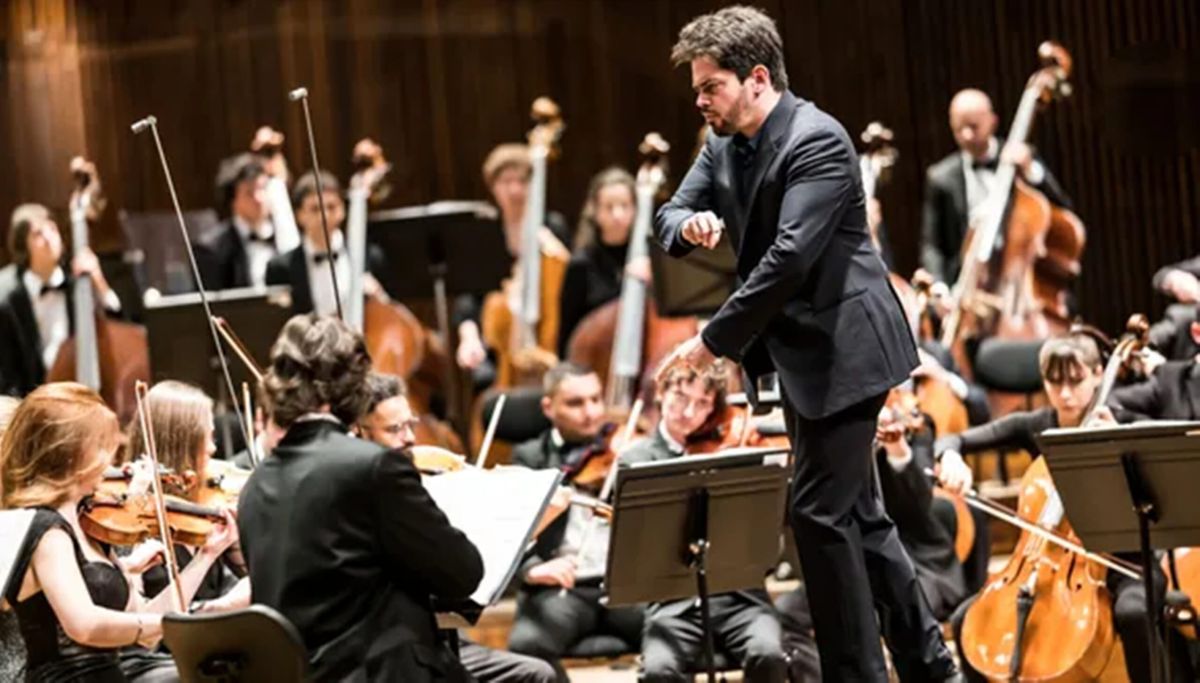
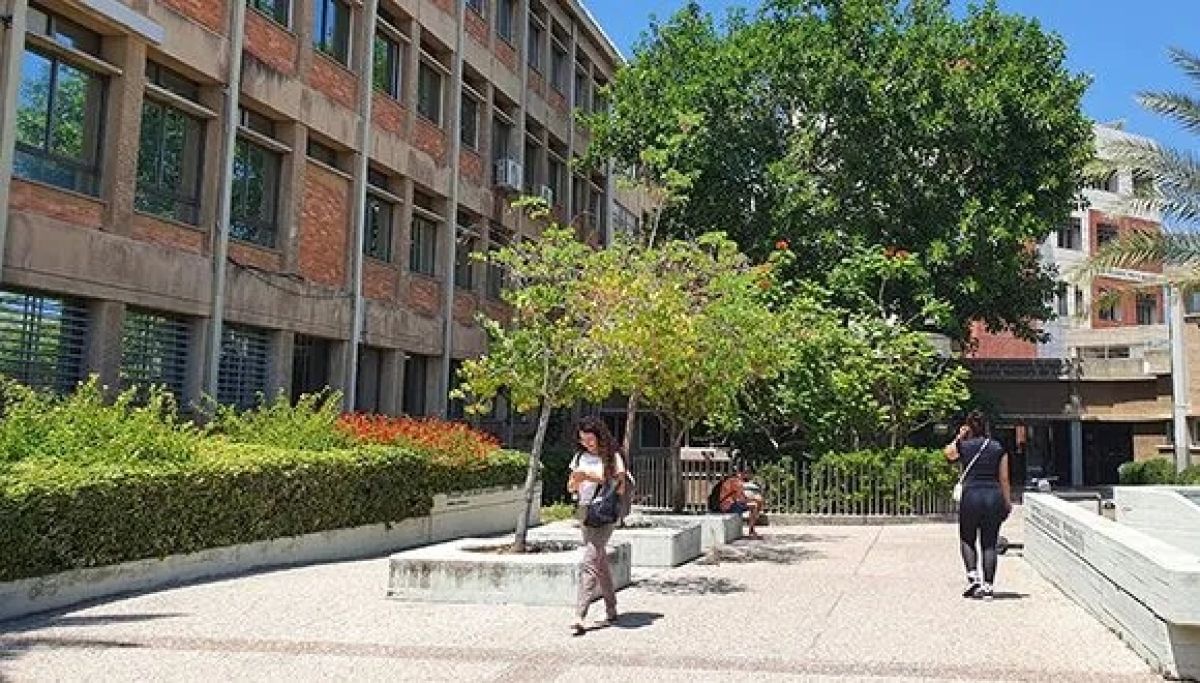




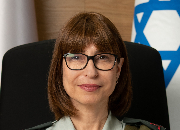
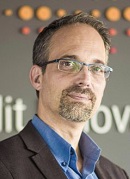
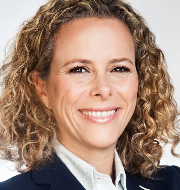



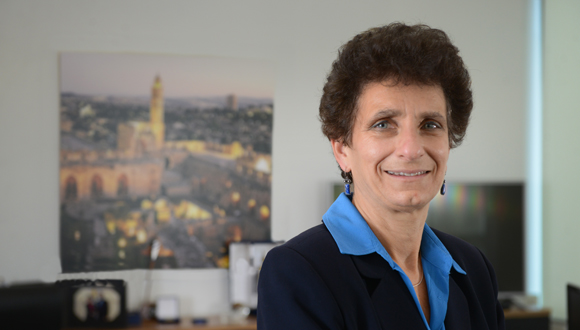 Galit Ronen (Photo: DEF)
Galit Ronen (Photo: DEF)
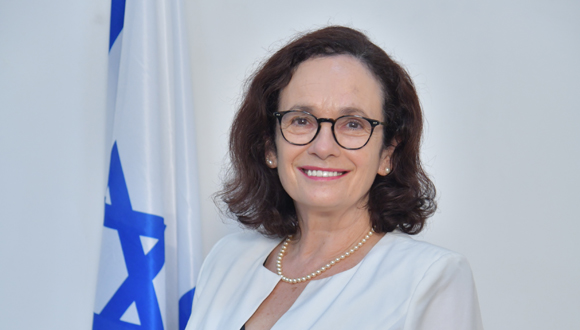 Rony Yedidia-Clein
Rony Yedidia-Clein
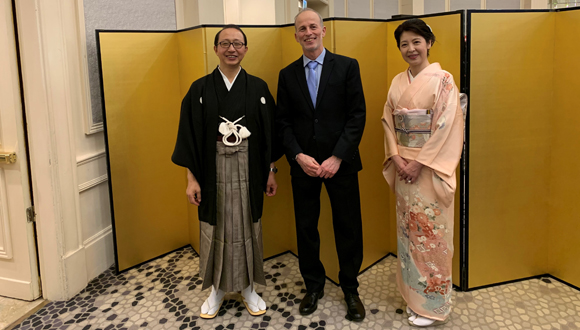
Ehud Eitam with the Japanese Consul and his wife
By Melanie Takefman
Featured image: Rony Yedidia-Clein (center, in white) in Rishikesh, during the Indian holiday of Holi.
Ehud Eitam with the Japanese Consul and his wife
By Melanie Takefman
Featured image: Rony Yedidia-Clein (center, in white) in Rishikesh, during the Indian holiday of Holi.